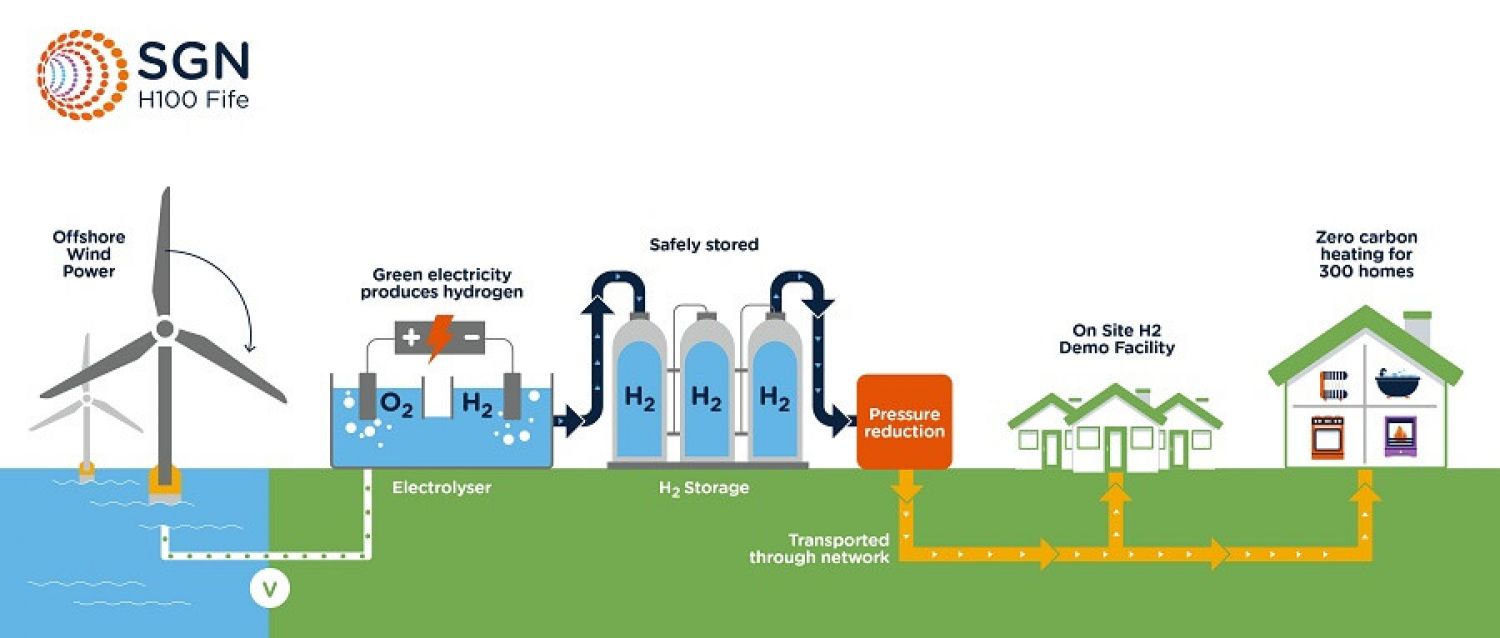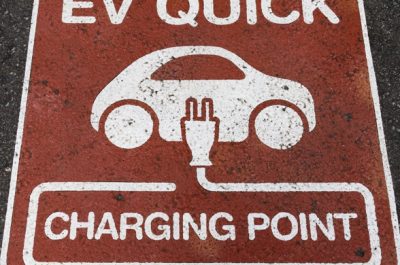It’s time for Britain to come in from the cold
When Brits complain about the heat, those of us down under usually scoff, but this year even Australians had to recognise the UK’s summer was a genuine scorcher. Central London reached a high of 40c – the hottest day since records began. This was accompanied by several days over 35c – suffocating in a city designed to trap heat and where household air conditioning is rare. And while the end of summer offers relief on one level, there’s another threat looming. The UK’s extraordinary hikes in energy prices mean many are facing a cold, bleak winter.
Earlier this year, ENA wrote an article about the variables associated with huge spikes in energy prices. Global demand, colder than average temperatures and periods of low or no wind. This led to a lack of dispatchable renewable wind power, linked to a phenomenon known as dunkleflaute. We also noted the looming threat of a war breaking out between Russia and Ukraine. Unfortunately, all those variables came to pass within a few weeks of the article being published.
The UK has born much of the brunt of the geopolitical instability and energy supply issues over the past six months. Already households in the UK were seeing huge increases in their power bill and with that country’s price cap set to be lifted next week, Bloomberg is reporting Brits can expect a further rise of about 80 per cent.
About 85 per cent of British homes reply on gas central heating and gas generates a third of the county’s electricity. Given UK wholesale gas prices jumped more than 15 per cent this week alone, and are four times what they were a year ago, Britons could be looking at an average bill of £3,600 (AUD 6172.67) a year.
To put this in harsh perspective, the full basic state pension in 2020 in the UK is £134.25 per week or £6,968 a year.
It’s clear something must be done.
The UK Energy Security Bill
Introduced into Parliament on the 6July 2022, the UK Energy Security Bill sets out to deliver a cleaner, more affordable and more secure energy system. The bill is in response to global events that have affected demand for and the price of energy, such as the COVID-19 pandemic and Russia’s invasion of Ukraine. £37 billion has been allocated to add a layer of protections for households to weaken the impact of an increase in prices, including:
- Changes to the National Insurance Contribution threshold which would save a typical household £330 a year
- A £1,200 one-off payment to vulnerable households
The UK Energy Security Bill focuses on three key initiatives: spur private investment in clean energy, protect consumers from price increases, and ensure the reliability and security of the UK energy system.
Supporting Private Investment
The Bill makes significant changes to regulations to spur private investment in clean energy to drive the transition towards ‘net-zero’ emissions. Regulation changes have been made to drive £100 billion of private sector investment and 480,000 jobs in the clean energy sector by 2030.
Carbon Capture
Carbon capture usage and storage (CCUS) is the process of capturing carbon dioxide and permanently storing it deep underground. The Climate Change Committee supports carbon capturing, stating the process as a ‘necessity, not an option’ for the transition to net zero in their Net Zero Technical Report undertaken on behalf of the UK, Scotland and Wales Governments.
Within the bill, the UK Government establishes a regulatory framework for private businesses to conduct the transport and storage of CO2. It seeks to mitigate technical and commercial risks and challenges in deploying CCUS at scale to incentivise private interest. Grants for licenses will be provided which indicate the allowed revenue a transport operator could receive, reflecting a return on capital investment. By 2030, investment and regulation changes in CCUS are estimated to support 50,000 jobs and have a forecast total turnover of £8.3 billion by 2050.
Hydrogen and Industrial Carbon Capture Business Models
The Bill introduces a Hydrogen Business Model which is designed to overcome the high costs of low carbon hydrogen (in comparison with high carbon counterfactual fuels) that can prevent deployment. From at least 2025, a levy will be introduced to overcome these operating costs to drive the transition away from fossil fuels.
The changes follow on from the UK Hydrogen Strategy which supports a roadmap including both ‘green’ and CCUS-enabled ‘blue’ hydrogen. At least half of the new spurred production is planned to be green hydrogen. At this stage it is uncertain how the levy will impact consumer bills, with the possibility of an increase in energy bills.
Hydrogen Village Trail
Decarbonising heating is a key focus of the bill, given half of all fossil fuel gas consumed and 25 per cent of greenhouse gas emissions in the UK each year are from heating.
The UK Government has initiated a series of trials in low-carbon heating alternatives to provide crucial evidence to inform decisions on the role of hydrogen in heat decarbonisation in 2026. These trials follow on from the Hydrogen for Heat consultation run in 2021. One alternative is hydrogen boilers which offer a carbon-free heating option that operates in a similar way to natural gas.
The Hydrogen Village Trail is anticipated to begin in 2023 in Fife on a neighbourhood scale. The trial will be progressively scaled up to a village trial of 1,000 – 2,000 households in 2025. To incentivise participation, the gas distribution network facilitating the gas supply in the trial will provide an attractive offer and supply electric alternatives to those who opt out.
Low-Carbon Heat Scheme
The Low-Carbon Heat Scheme supports the expansion of electric heat pumps as consume a third of the energy as alternatives (gas boiler) for the same heat output.
The Low-Carbon Heat Scheme sets out to grow the market in heat pumps to 600,000 installations per year by 2028. Manufacturers of fossil fuel heating appliances will be required to meet a rising standard for low-carbon heat pump sales as a proportion of their total appliance sales. Incentivising manufacturers to lower the cost of heat pumps for households. The UK Government aims to achieve 25-50 per cent reduction in the up-front costs of heat pumps by 2025. The scheme runs alongside the Boiler Upgrade Scheme that provides up to £6,000 in grant funds to incentivise installation of low carbon heating systems.
Protecting Consumers
The last primary energy legislation of this scale was in 2013. This bill looks to update the framework for modern global contexts.
Future System Operator (FSO)
The bill includes the establishment of a new body to bring together the planning of electricity, gas and potentially systems for new technologies, such as hydrogen and carbon capturing. The Future System Operator (FSO) will follow on from the existing capabilities of the Electricity System Operator and support future development, such as gas strategic network planning, long-term forecasting and market strategy functions. FSO will provide independent advice to the government and Ofgem.
FSO will be established in 2024 and set out to achieve the following objectives:
- Identify and carry out opportunities to facilitate transition to net-zero
- Promote security of supply of electricity and gas
- Promoting efficient, coordinated and economical energy sector – reduce costs for consumers
Batteries and Pumped Hydro Storage
Introduction of legislation to formalise electricity storage as a distinct subset of generation. The change will provide long-term clarity and certainty over its treatment within the framework. It will facilitate the deployment of electricity storage as it will be treated differently to other forms of generation where applicable.
Flexibility from technologies such as electricity storage could save up to £10 billion per year by 2050 through reducing the amount of energy needed to be generated and create 24,000 jobs. Technologies include batteries at home or businesses or in facilities that pump water to higher reservoirs when electricity is abundant, and let it flow back down through a turbine when it is scarce (pumped hydro storage).
Security and Resilience of the Energy System
Recent events have highlighted security gaps in the system. The bill seeks to ensure the responsible operation of the energy system for safety and security purposes.
Fuel Resilience
This involves bringing forward measures for downstream oil security to prevent fuel supply disruption. Potential threats include malicious protest, industrial actions and national security.
The powers of the Secretary of State will be expanded to maintain continuity of core fuel supplies and ensure that industry reduces the risk of emergencies that affect fuel supply. Direct regulatory power changes aim to address improving fuel supply rather than respond to emergencies. For example, the Secretary of State would be able to direct a specific enterprise to increase production of a particular fuel.
Informational powers allow the Government greater oversight of fuel supply. Major operators may be imposed to report events that pose a threat to fuel supply. The Government can then use this information to have a consistent and accurate image of fuel resilience. Financial assistance power provides spending power for maintaining or improving supply of fuel.
The bill also works to ensure responsible ownership of UK assets including generator, transmission and poles and wires, remains in the hands of the companies with the best ability to operate them.
Nuclear Energy
The Bill claims nuclear energy is an important part of the UK’s energy mix and the bill will remove barriers to future investment through enhancing the nuclear third-party liability regime.
It will bring forward the final delicensing and re-use of nuclear sites and generally make an easier market for nuclear investment.
Government is a marathon, politics is a sprint
The UK Government realises that the implementation of the bill is a marathon. But politics is a sprint. Alongside these reforms a suite of measures have also been introduced to allow for more immediate relief from bill shock. Cost of living payments and bill reductions have already started to be handed out to Britain’s most vulnerable.
The success of this bill and the efficacy of interventions to relieve some of the massive energy costs remains to be seen, but at least for now, the Brits can come in from the cold.



